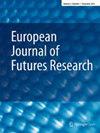削减立法机构的政治短视主义:影响力与制度化之间的权衡?
IF 3.7
3区 社会学
Q1 SOCIAL SCIENCES, INTERDISCIPLINARY
引用次数: 0
摘要
立法机构最近开始投资于预见性治理。除了新的做法,他们还引入了指定的未来委员会和机构,将国会议员与未来的愿景和建议联系起来。20年前,只有芬兰有一个“未来委员会”,如今,世界上10个国家都有类似的机构。虽然标志着让专家驱动的预见性治理更接近选民的重要尝试,但未来的立法机构可能会变得短暂,或者在政治上仍然软弱,因为它们争取权力的努力通常会威胁到现有的立法机构。为了研究这种新出现的紧张关系,我们从理论上区分未来委员会的非正统方法与传统立法实践,并从经验上比较所有现有立法未来委员会和类似机构的运作。我们发现这些机构之间有相当大的相似之处,它们大多在普通立法程序之外运作。为了生存,他们必须在不危及现有权力分配的情况下为议员们增加价值。找到这种平衡可以加强未来立法机构的巩固,但同时也限制了它们传统的政治影响。本文章由计算机程序翻译,如有差异,请以英文原文为准。
Curtailing political short-termism in legislatures: a trade-off between influence and institutionalization?
Abstract Legislatures have recently started to invest in anticipatory governance. Alongside new practices, they have introduced designated future committees and organs that connect MPs to future-regarding visioning and advice. Two decades ago, only Finland had a ‘future committee’, today broadly similar organs exist in 10 countries around the world. While signaling an important attempt to take expert-driven anticipatory governance closer to voters, legislative future organs may become short-lasting or remain politically weak, as their efforts to gain power typically threaten established legislative actors. To examine this emerging tension, we theoretically distinguish the unorthodox methods of future committees from traditional legislative practices and empirically compare the operation of all existing legislative future committees and similar organs. We uncover a considerable similarity between these institutions that mostly operate outside of the ordinary legislative process. To survive, they must add value to MPs without endangering the existing division of power. Finding this balance enhances the consolidation of legislative future organs, but it simultaneously limits their conventional political impact.
求助全文
通过发布文献求助,成功后即可免费获取论文全文。
去求助
来源期刊

European Journal of Futures Research
SOCIAL SCIENCES, INTERDISCIPLINARY-
CiteScore
4.60
自引率
9.10%
发文量
23
审稿时长
14 weeks
期刊介绍:
There is a significant need for European futures research as European countries face numerous substantial problems; at the same time they seek to make a contribution to solving global challenges. European regions “share” common experiences, divisions and conflicts – which altogether build a rich resource for critical examination as well as forward-looking renewal. European integration after World War II has reshaped political, economic and social relations in Europe and beyond. Therefore, the future of Europe will also depend on the further development of the European Union in its wider transnational and global contexts. Consequently, the journal seeks to foster thorough analysis of key European policies, such as those for research and education. Nonetheless, topics addressed in the journal are not limited to the (development of the) European Union; we invite articles that raise questions about European futures more generally. Interdisciplinary research is as welcome as are disciplinary studies, ranging from the social sciences and humanities to the natural sciences and engineering.
 求助内容:
求助内容: 应助结果提醒方式:
应助结果提醒方式:


